News

To enable the University of Kentucky College of Medicine to succeed in its mission for a healthier Kentucky, leadership must prioritize the wellness and well-being of faculty, staff, and learners. Lisa Williams, MSSA, is serving in the college’s new leadership position, associate dean for wellness and well-being, to help us excel in this goal.
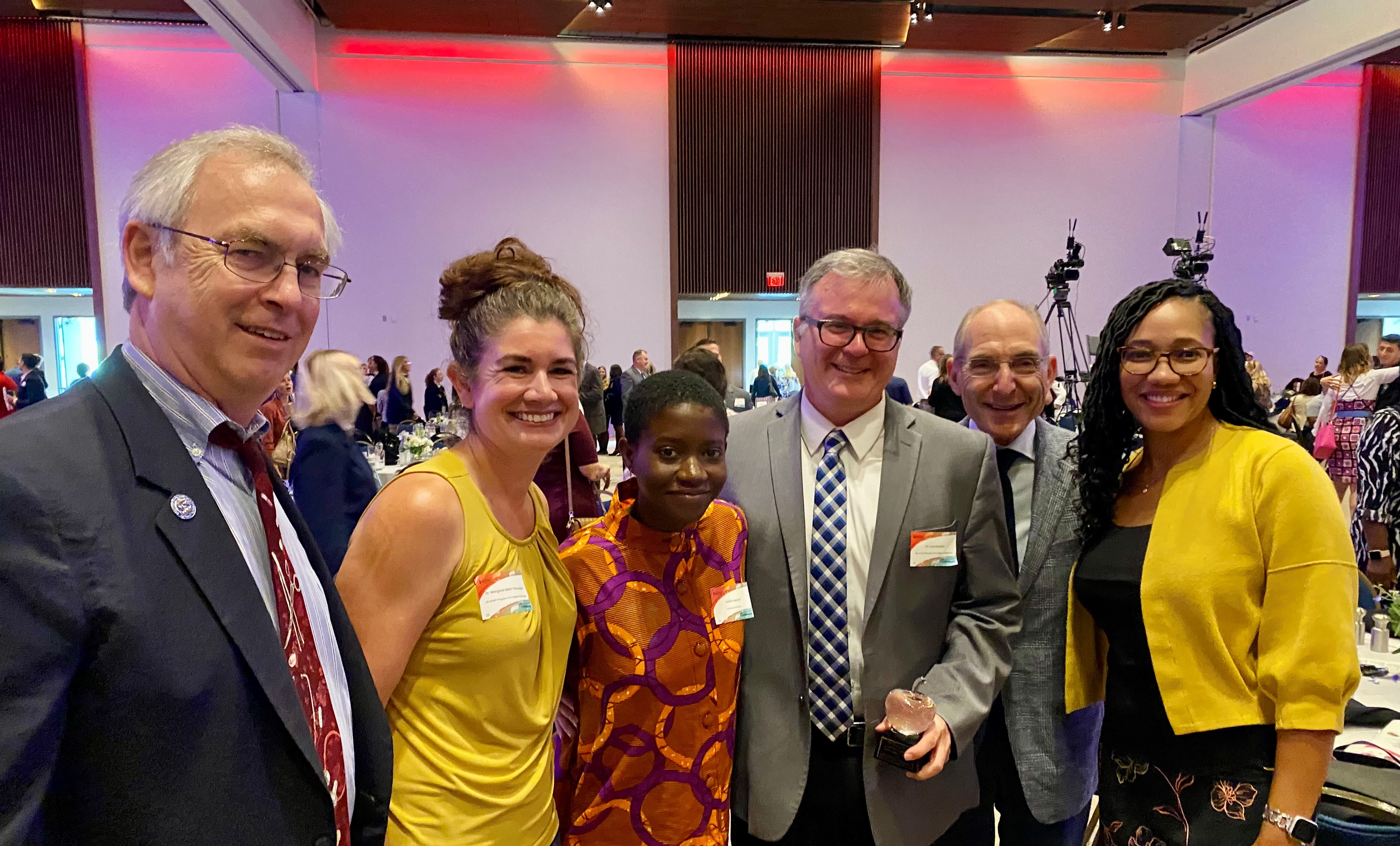
In recognition of its strong commitment to student achievement, the University of Kentucky STEM Through Authentic Research and Training (START) program was honored with the Fayette County Public Schools (FCPS) Golden Apple Award.
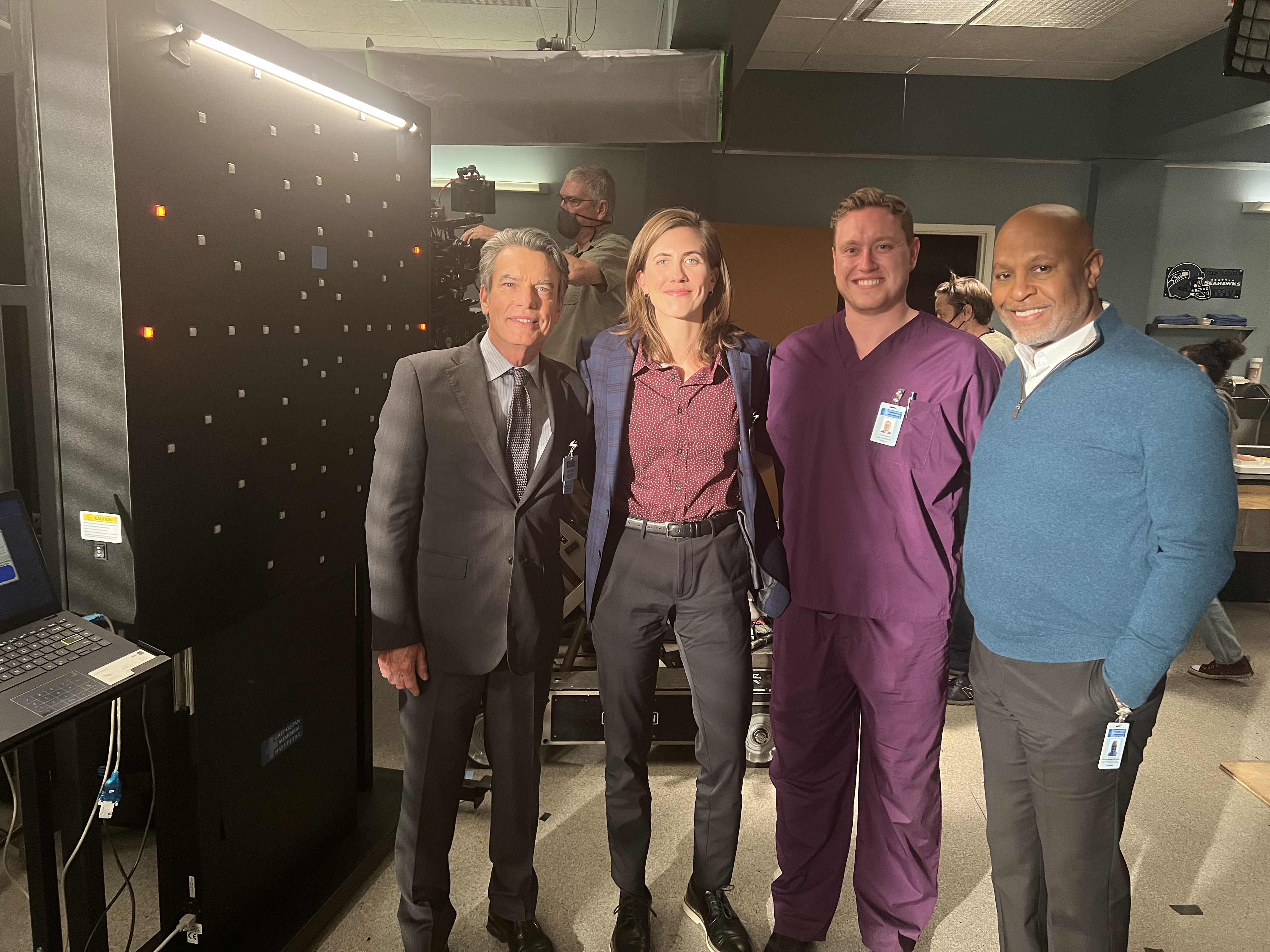
Jon Vincent is not a doctor yet, but he has played one on TV.
Vincent, an MD/PhD student at the UK College of Medicine, had early experience wearing scrubs in a clinical setting when he served as an extra for a recent episode of the hit medical drama, “Grey’s Anatomy.”

Fascinated by the University of Kentucky’s robust research infrastructure and its seamless integration of basic science and clinical practice, Louisville, Ky., native Charles Lucas developed a vision for helping UK advance Parkinson’s disease research and education.
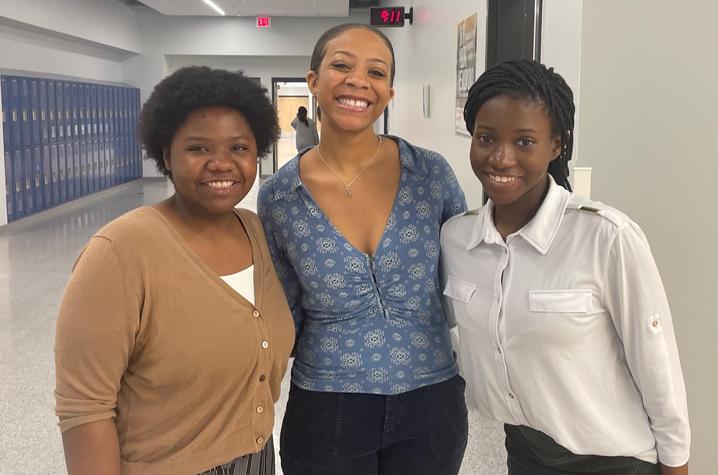
The STEM Through Authentic Research and Training (START) program at the University of Kentucky is creating a unique pipeline to increase science, technology, engineering and math (STEM) literacy and promote STEM careers for traditionally underrepresented populations — people of color, individuals with disabilities, students from free or reduce
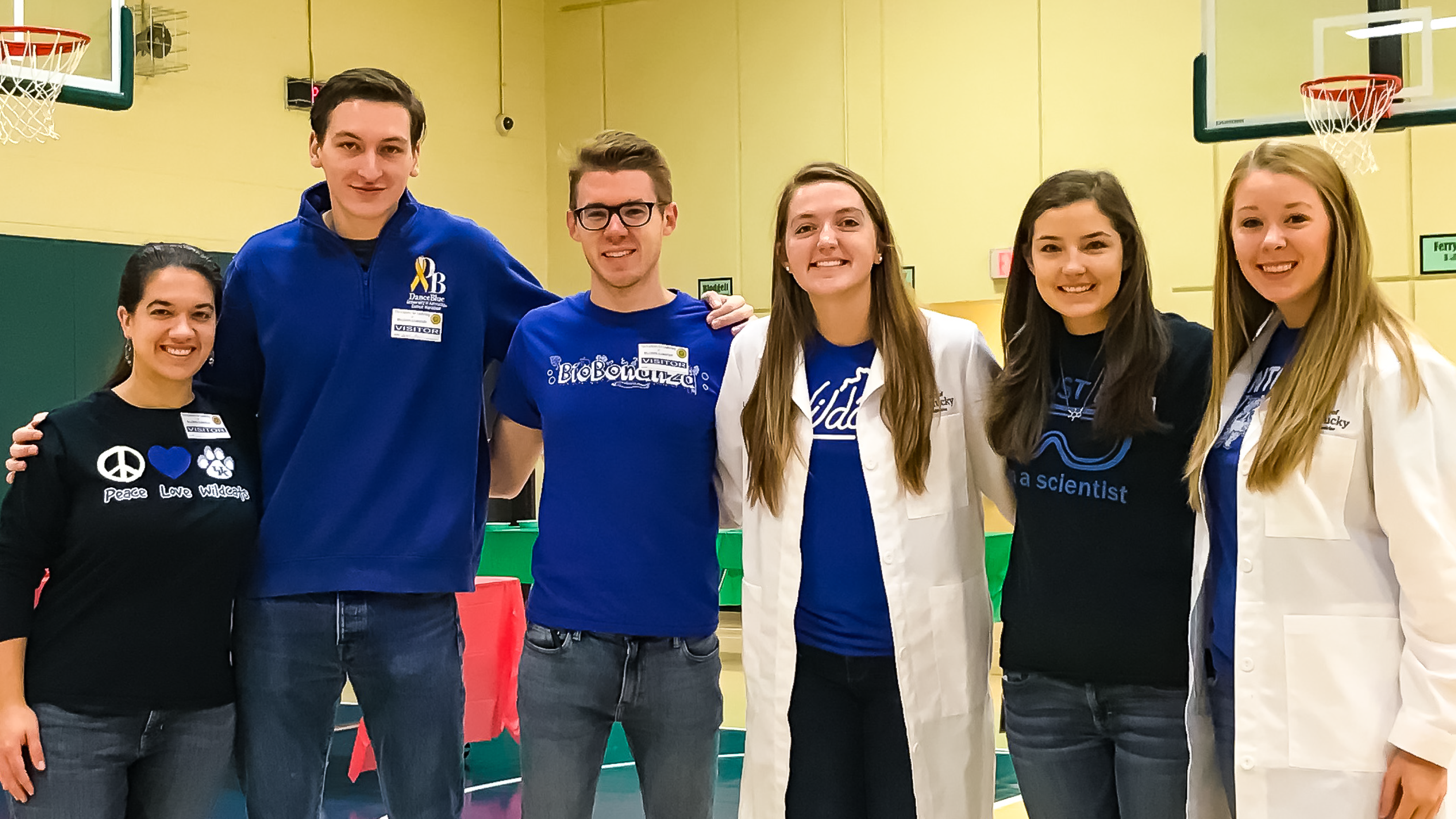
For students in research, the journey toward earning a graduate or postgraduate degree can be rewarding once they begin laboratory work, but at times, also very isolating.
“Once you join your lab, you go to your specific department, and even within departments, we hardly see each other because we are just doing the individual work that our lab focuses on every day, day in and day out,” said Meagan Kingren, a doctoral student in pharmacology and nutritional sciences.
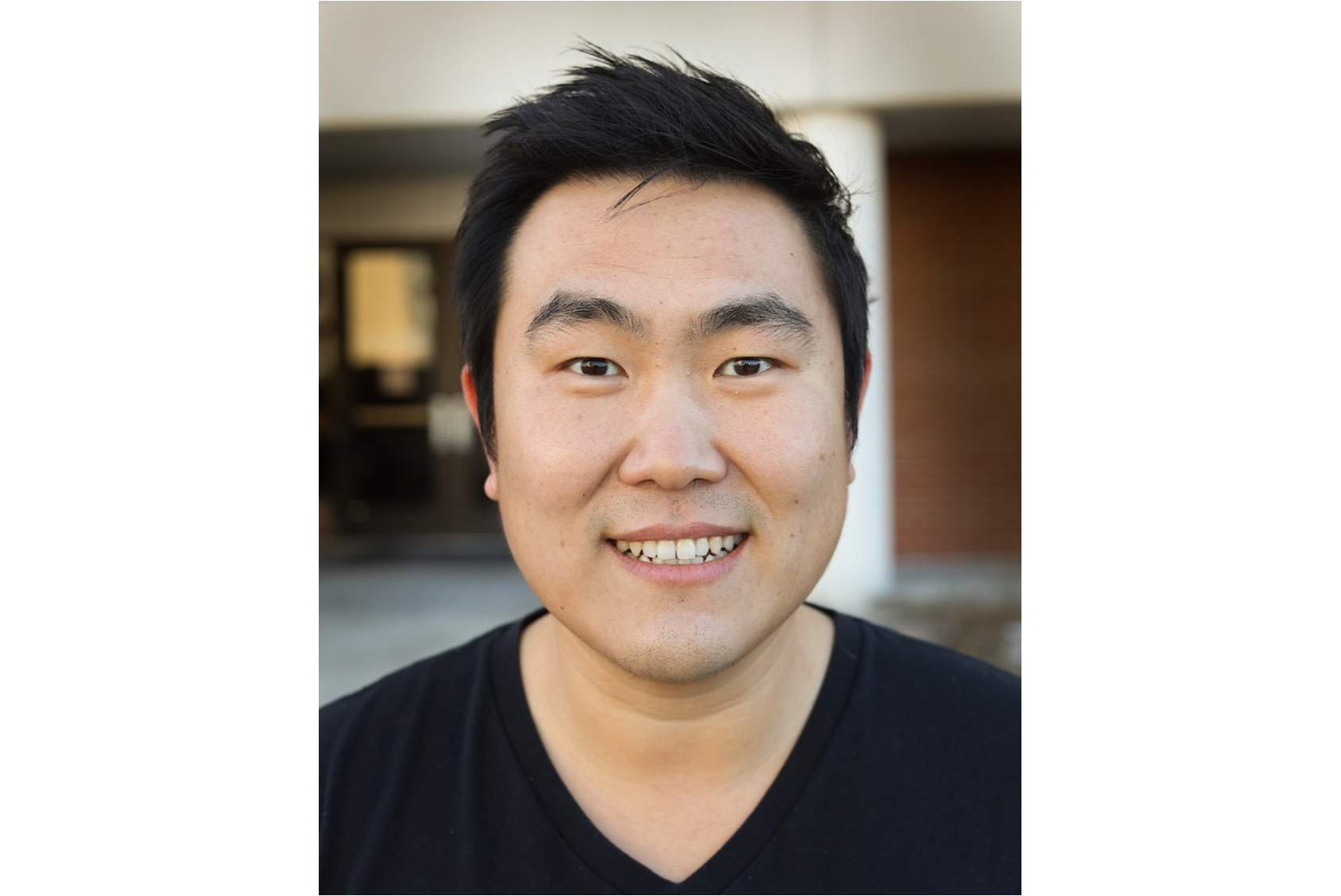
Ramon Sun, PhD, is an assistant professor of neuroscience whose lab focuses on interpreting the molecular events connecting complex carbohydrate metabolism to cellular metabolism, signaling, and physiology.
While his primary appointment is in neuroscience, his work also encompasses molecular and cellular biochemistry and is affiliated with Markey Cancer Center, Sanders-Brown Center on Aging, and the Spinal Cord and Brain Injury Research Center.
You can learn more about Dr. Sun in the following Q&A.
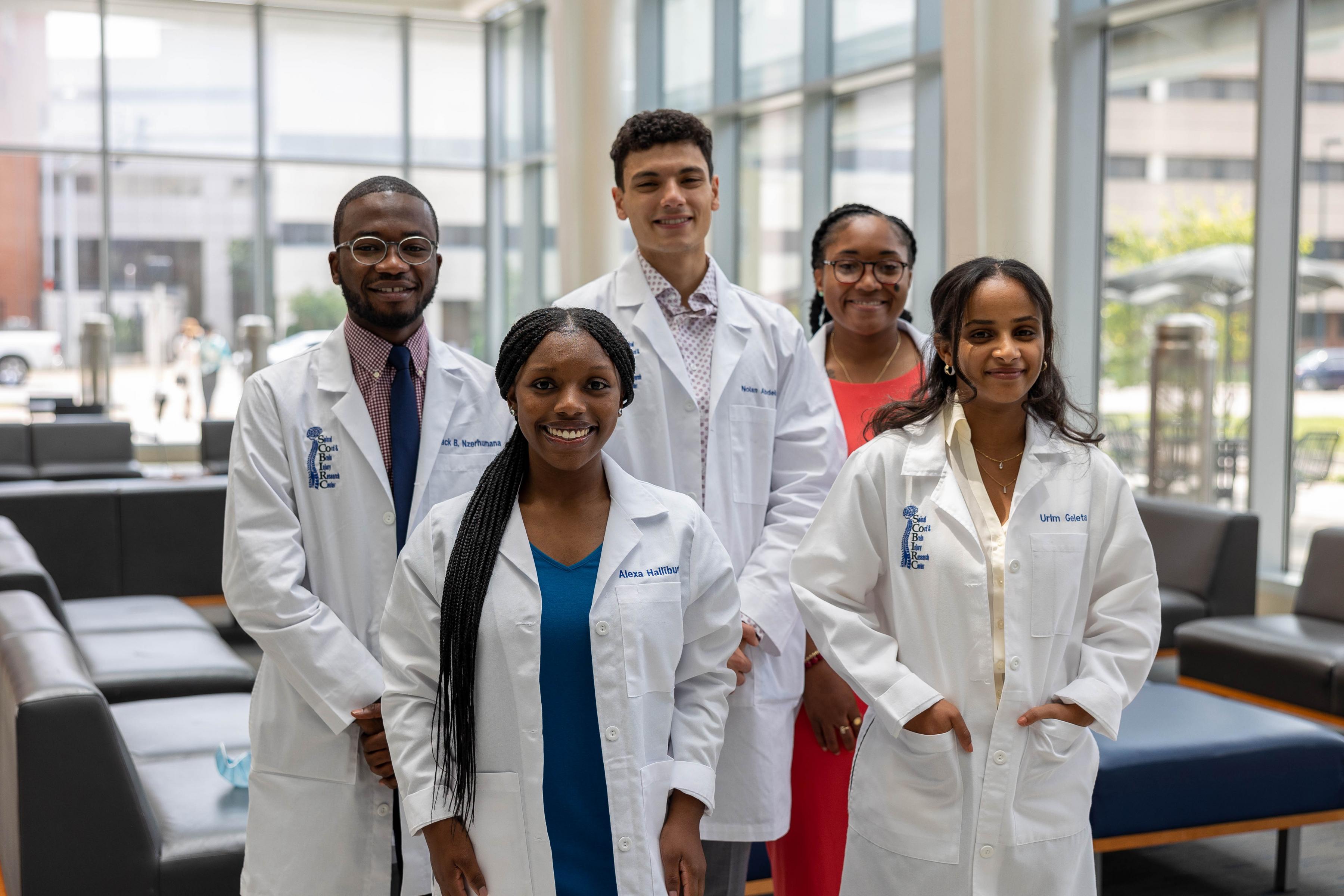
Jordon Burdette, a senior neuroscience and psychology major, was minutes away from presenting to a crowd of University of Kentucky scientists when the nerves set in. Her presentation, focused on cellular regeneration and spinal cord injury, was a culmination of a year of research she had worked on with her mentor, Warren Alilain, PhD, associate professor of neuroscience.
Burdette pushed through those nerves, and Dr. Alilain said she “crushed” it. She left feeling proud of her accomplishment and thankful for the opportunity to study a topic she didn’t expect to ever pursue.
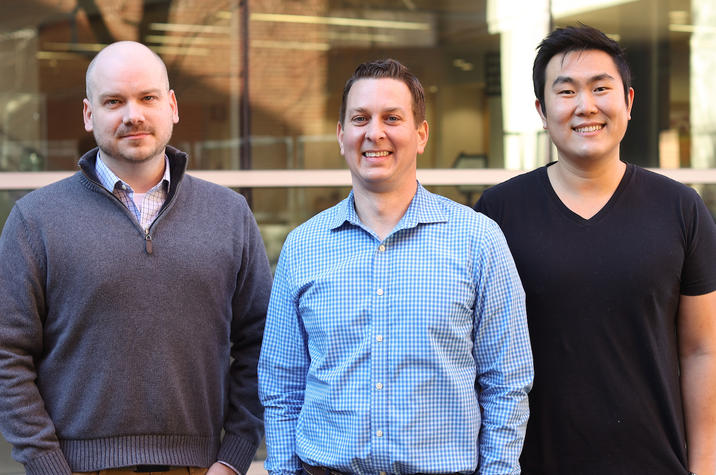
LEXINGTON, Ky. (Feb. 11, 2022) — Three Sanders-Brown Center on Aging researchers are the first at the University of Kentucky to receive backing from the Cure Alzheimer’s Fund. CureAlz is a non-profit organization dedicated to funding research with the highest probability of preventing, slowing, or reversing Alzheimer’s disease. The organization puts 100% of donations into research, with around 600 grants given out to date.
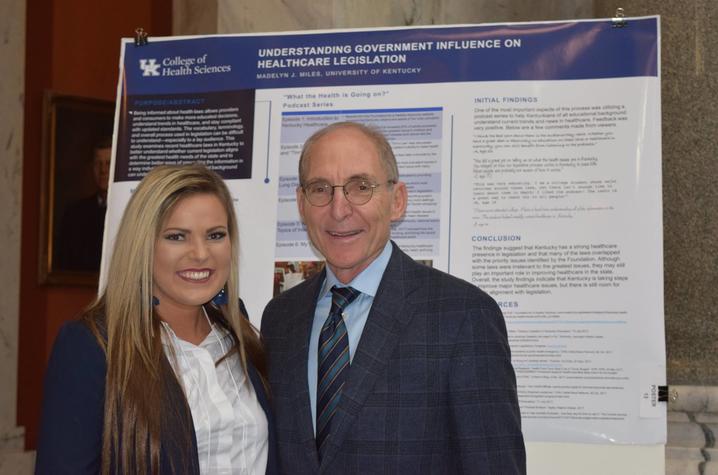
LEXINGTON, Ky. (Feb. 11, 2022) — Ten undergraduate researchers from the University of Kentucky have been chosen to present their research at the 2022 Posters-at-the-Capitol event on March 3 at the Kentucky state capitol in Frankfort. Now in its 20th year, this event will have more than 100 student representatives from across the state displaying the results of their research and scholarly or creative work.
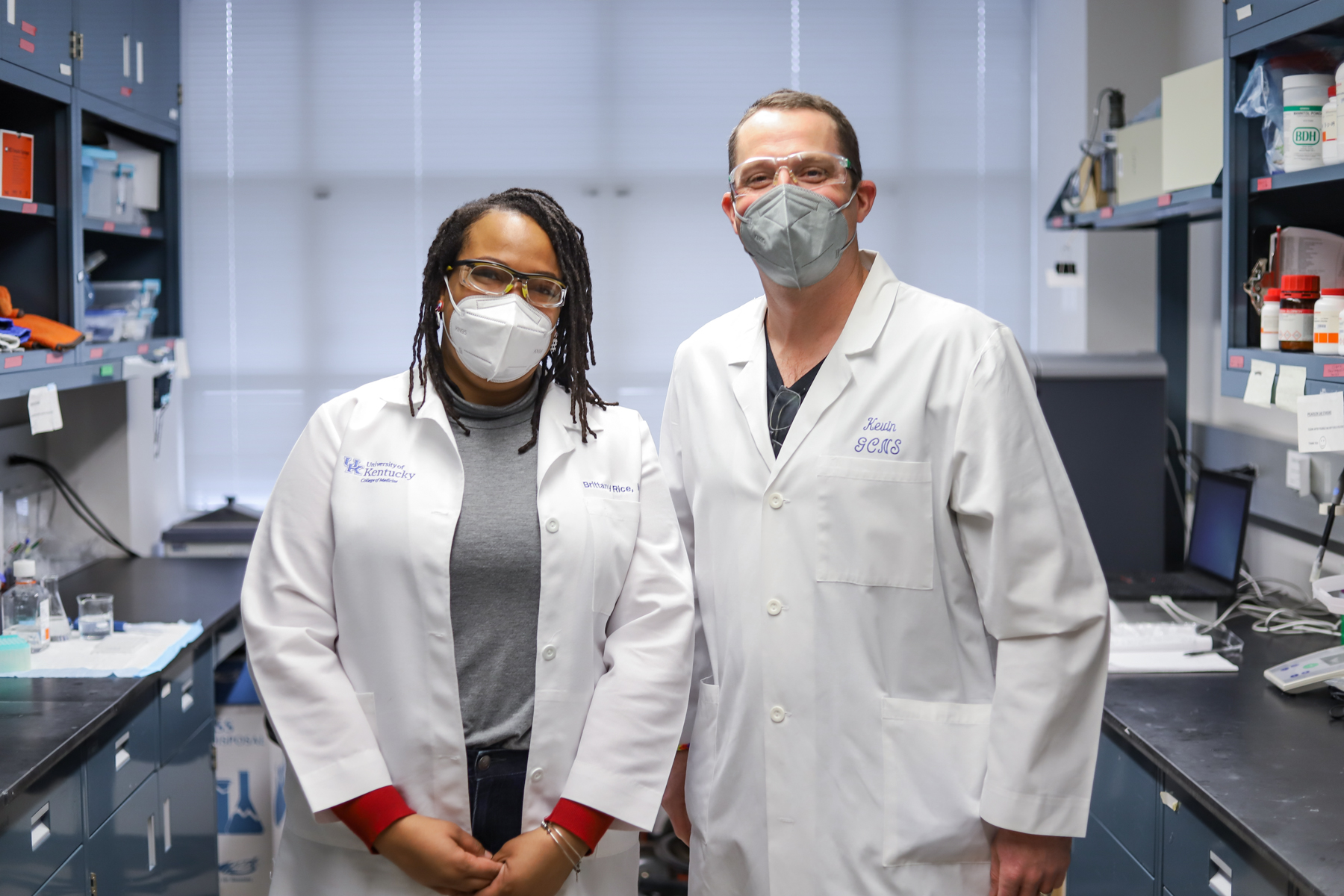
Urim Geleta is only into her senior year of her undergraduate degree, yet she has already played a key role in neuroscience research at UK.
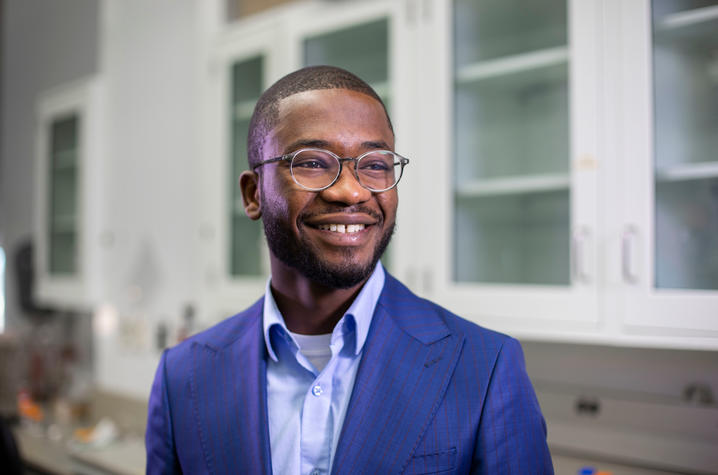
LEXINGTON, Ky. (Dec. 17, 2021) — At just 5 years old, Bisimwa “Jack” Nzerhumana saw things no human being, let alone a child, should ever have to see.
Born in the Democratic Republic of Congo (DRC), a country plagued for decades by civil war, political instability and exploitation, young Nzerhumana was exposed to horrific violence daily. At times, he and his family had to literally run for their lives.
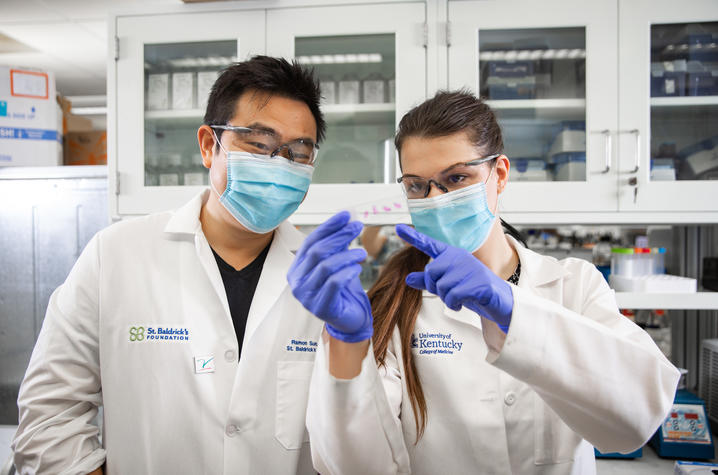
LEXINGTON, Ky. (Dec. 16, 2021) — Using new methodology, University of Kentucky researchers have mapped the variations in sugar chains attached to brain proteins from deceased healthy individuals or individuals with Alzheimer’s disease.
Thus far, no effective treatments for Alzheimer’s disease (AD) are available. New approaches to preventing the progression of this devastating neurological disease are desperately needed.
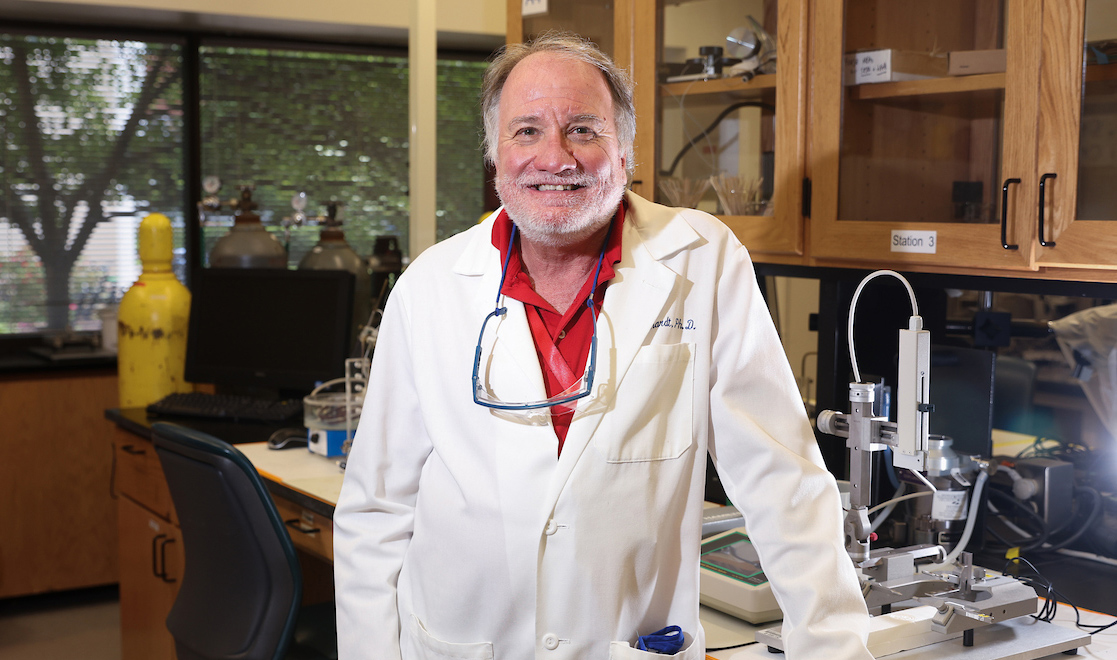
Greg Gerhardt, PhD, is a professor of neuroscience and researcher with the Spinal Cord and Brain Injury Research Center (SCoBIRC) and Brain Restoration Center, as well as advisor for the MD/PhD program. He currently serves as co-principal investigator for the Brain Restoration Alliance in Neurodegeneration (BRAIN). In the following Q&A, Dr. Gerhardt shares more about his current projects.
Q: Why did you want to pursue a career in neuroscience research?
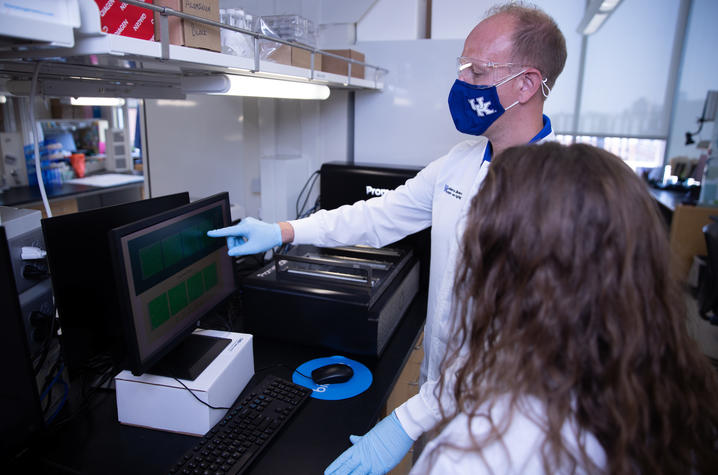
LEXINGTON, Ky. (Dec. 1, 2021) — Work by a group of researchers at the University of Kentucky’s Sanders-Brown Center on Aging was recently published in Genes. The article looks at the use of data mining and machine learning in research.

By the time she became a faculty member at the UK College of Medicine, Susanne Arnold, MD, was arguably more prepared than anyone to treat Kentuckians and educate future physicians.
She was introduced to the medical field early and was surrounded by it. She recalls taking a preserved human brain to show and tell when she was in grade school (which she jokes wouldn’t happen now, though her classmates thought it was pretty cool). In high school, she shadowed physicians in a clinic, and she gained clinical experience observing autopsies before she even started medical school.
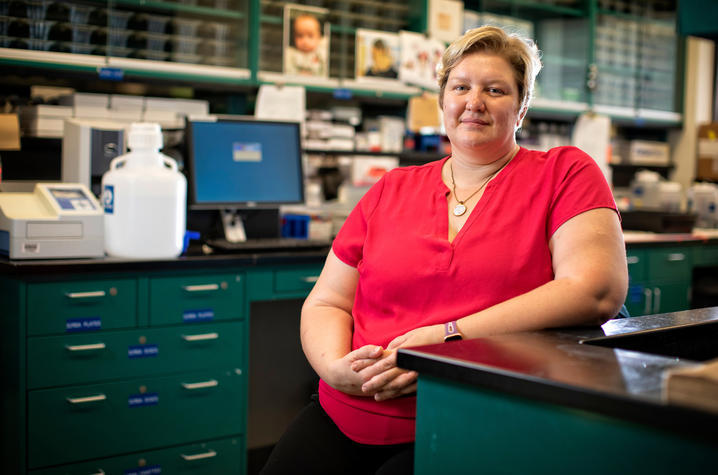
LEXINGTON, Ky. (Nov. 11, 2021) — Researchers at the University of Kentucky’s Sanders-Brown Center on Aging recently received a five-year grant renewal of their MarkVCID program from the National Institutes of Health (NIH). The award total is more than $6 million.
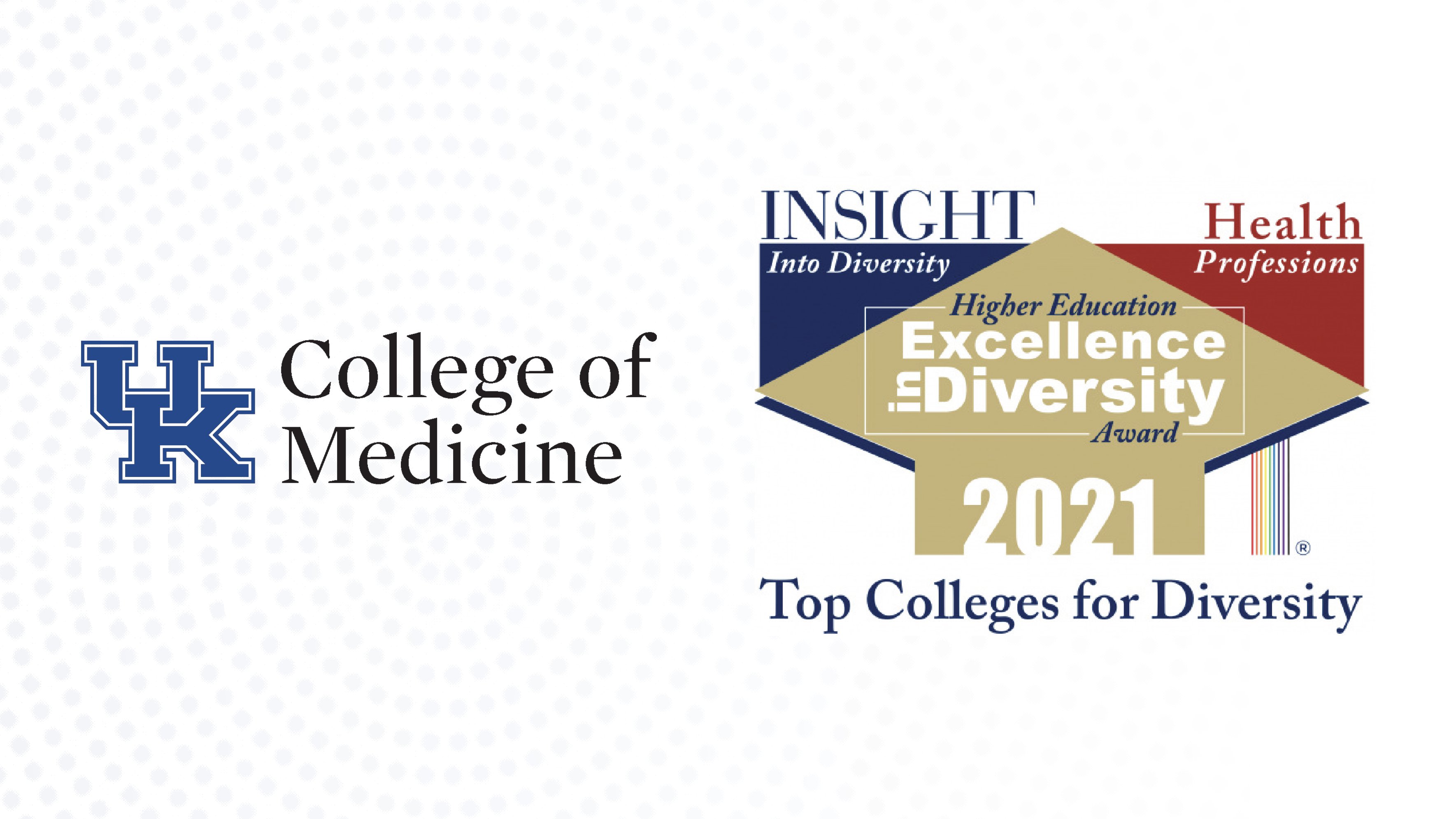
The University of Kentucky College of Medicine has received the 2021 Health Professions Higher Education Excellence in Diversity (HEED) Award from INSIGHT Into Diversity magazine, the oldest and largest diversity-focused publication in higher education.
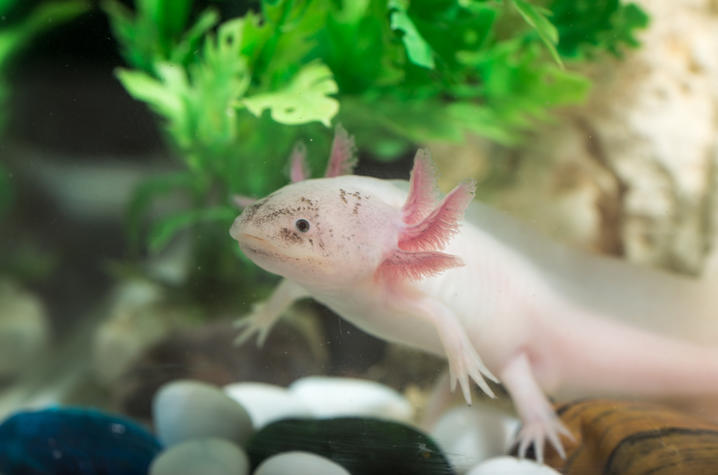
LEXINGTON, Ky. (Oct. 5, 2021) — University of Kentucky College of Medicine researchers were part of a new study that gives insight into how limb development evolved in vertebrates.

LEXINGTON, Ky. (Aug. 26, 2021) — Research conducted at the University of Kentucky College of Medicine suggests that higher intake of specific nutrients is associated with lower brain iron concentration and better cognitive performance in older adults.